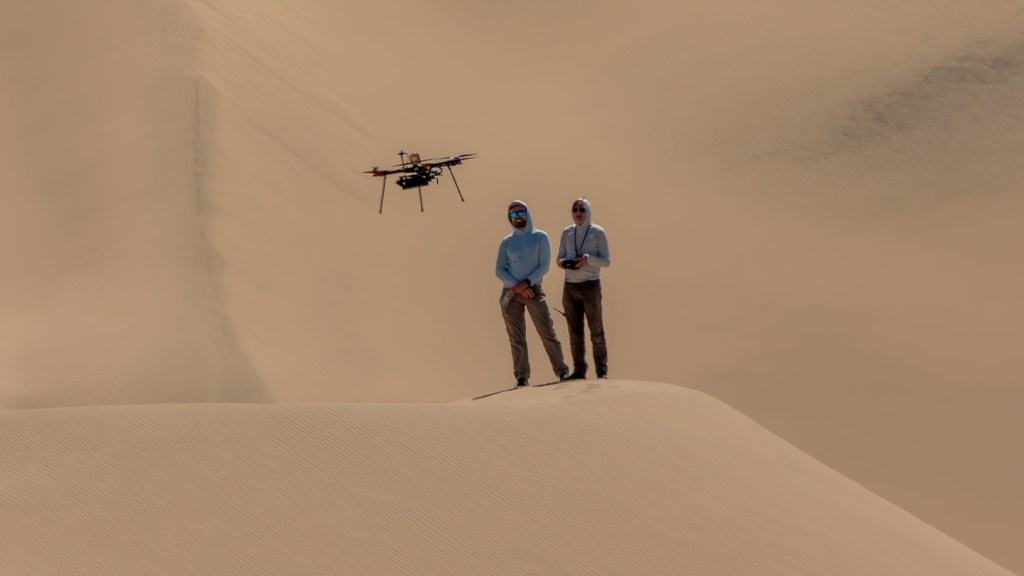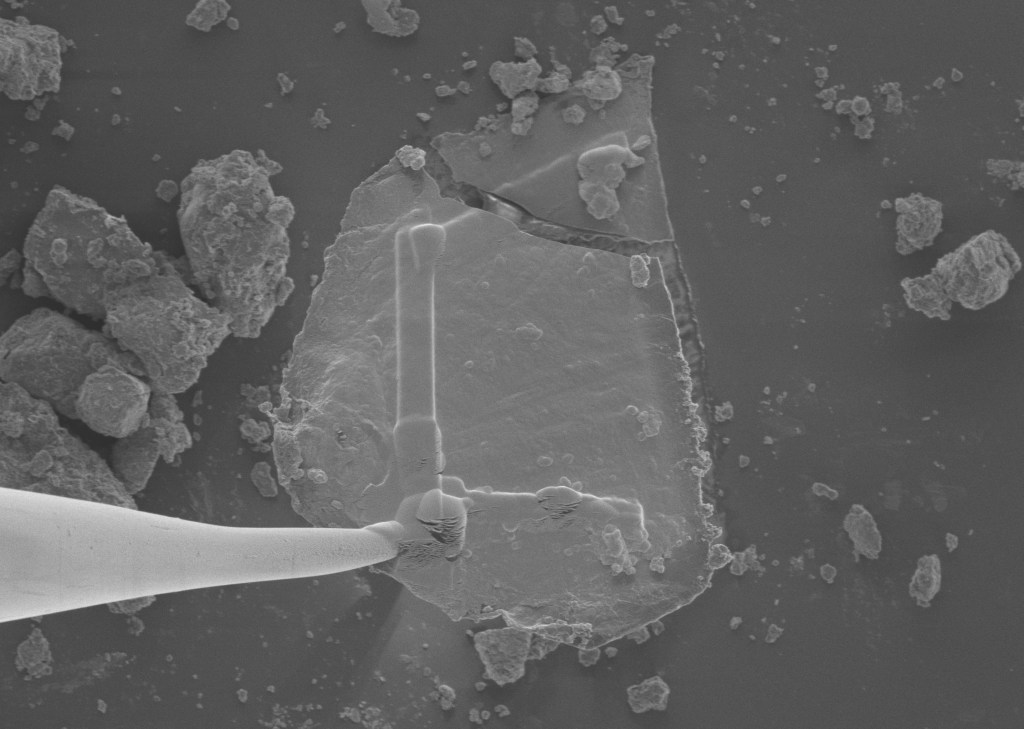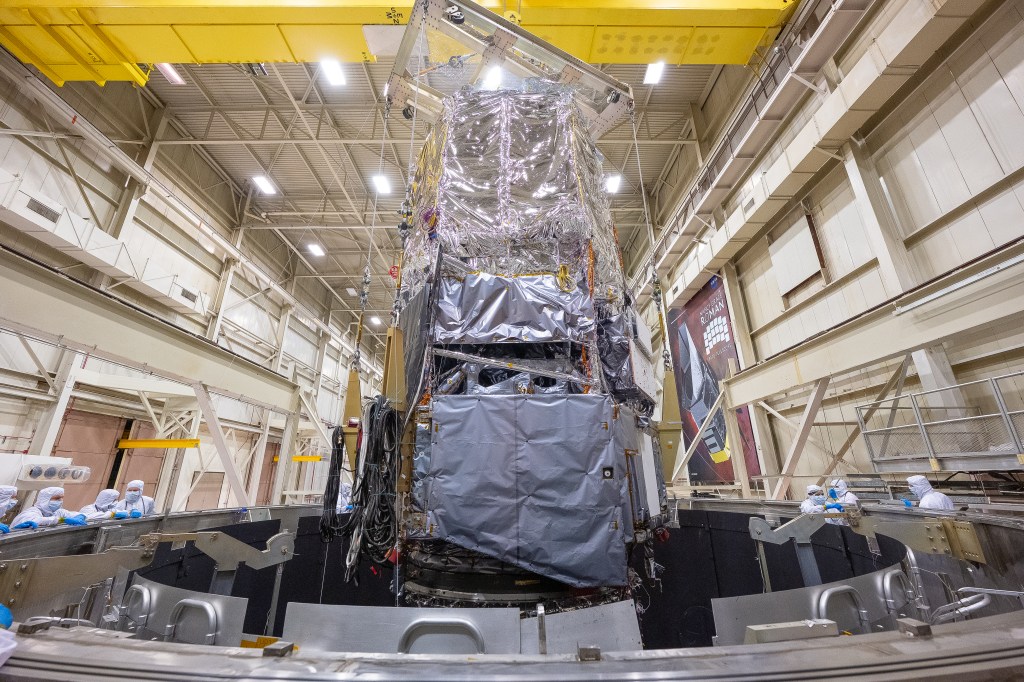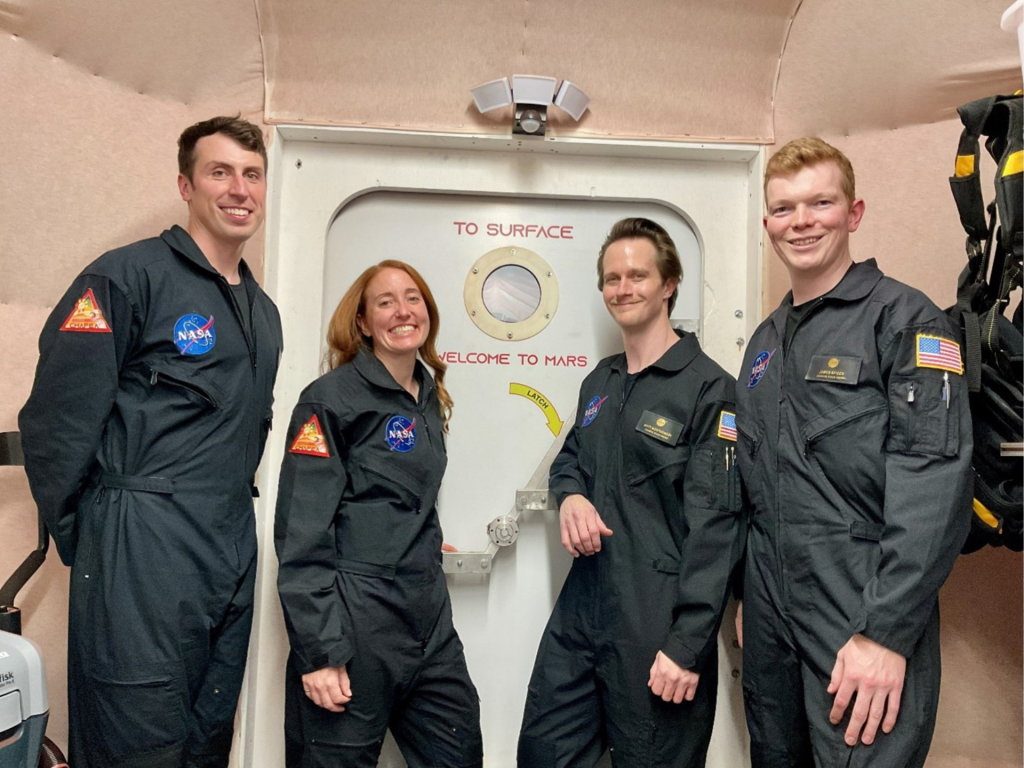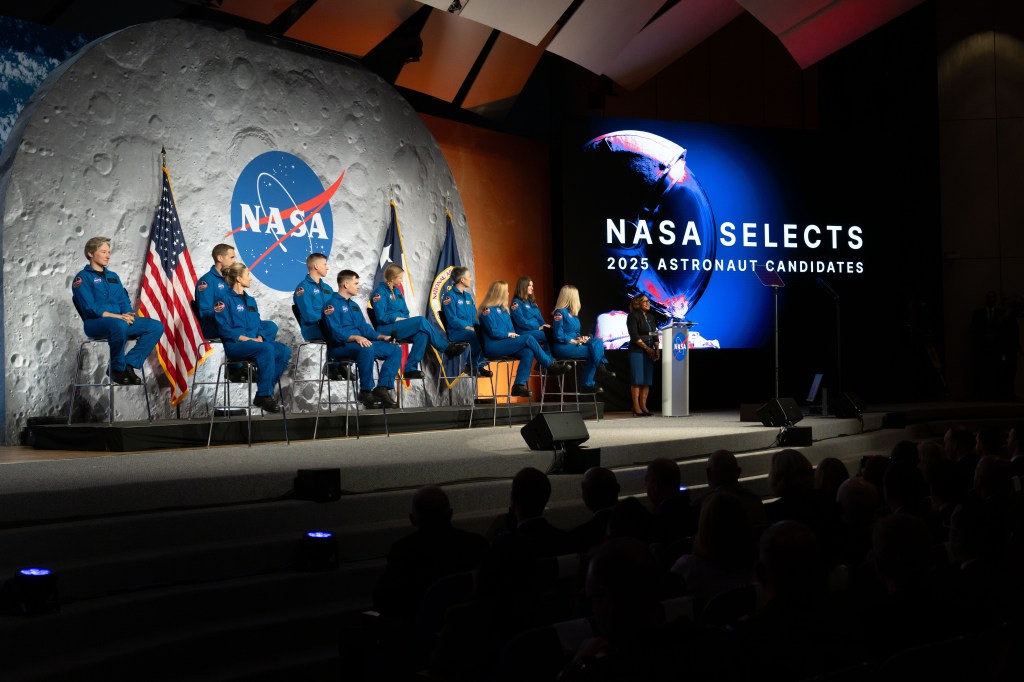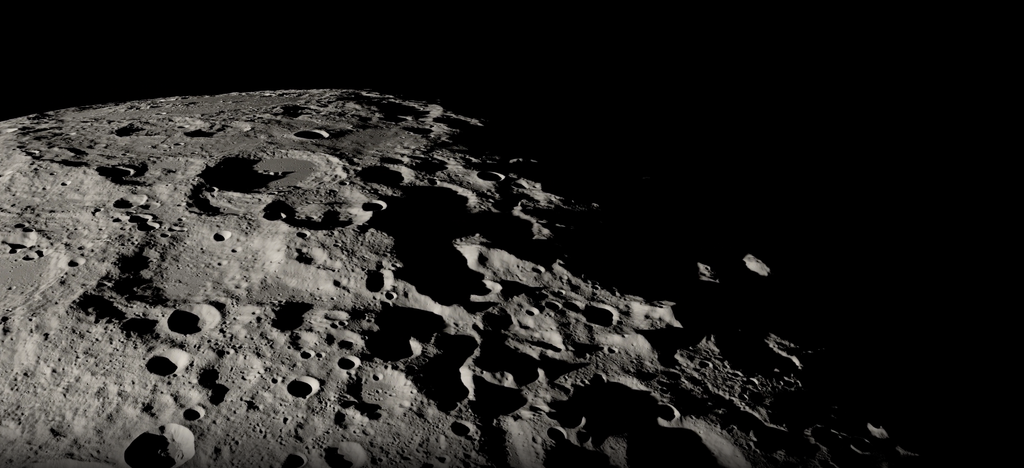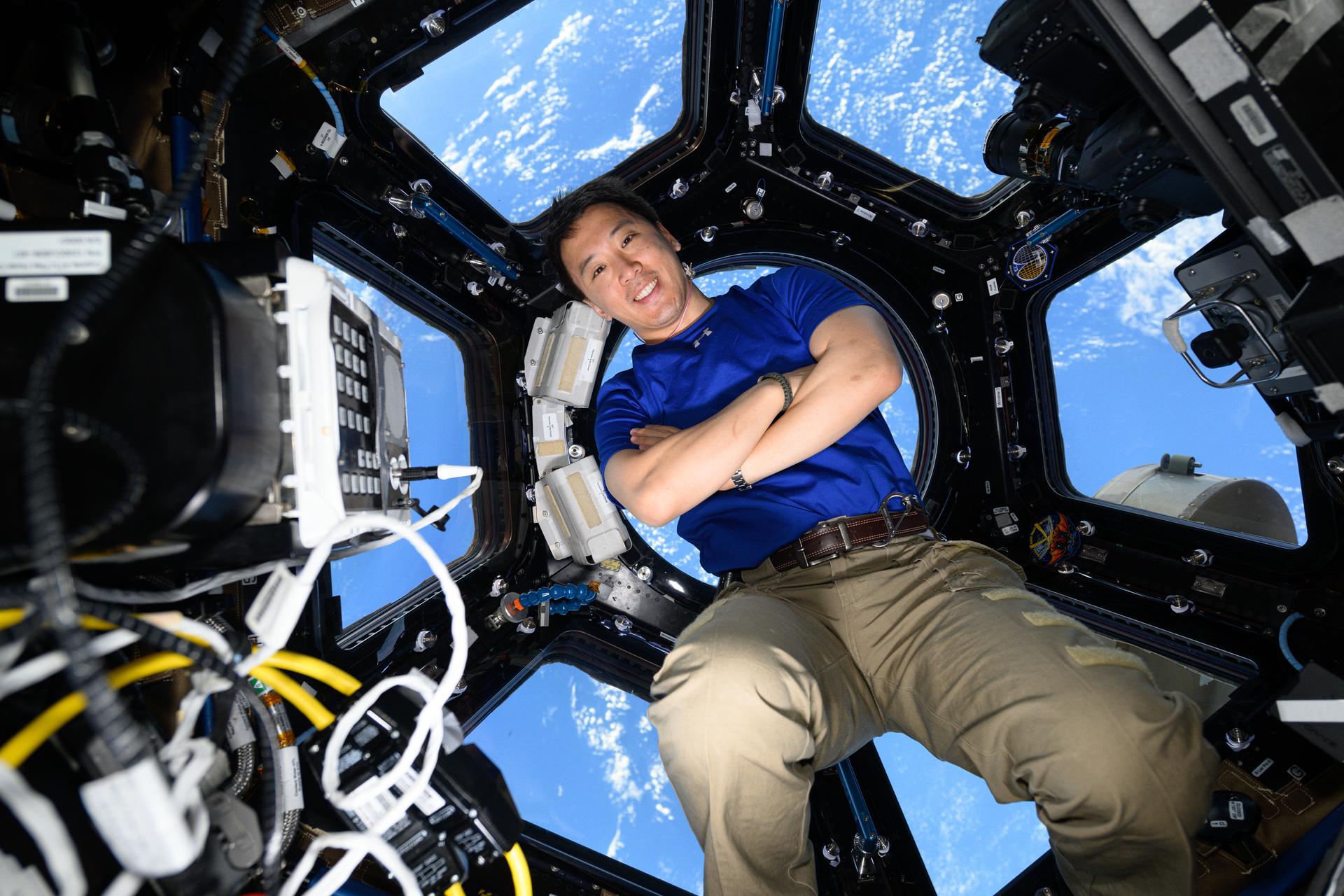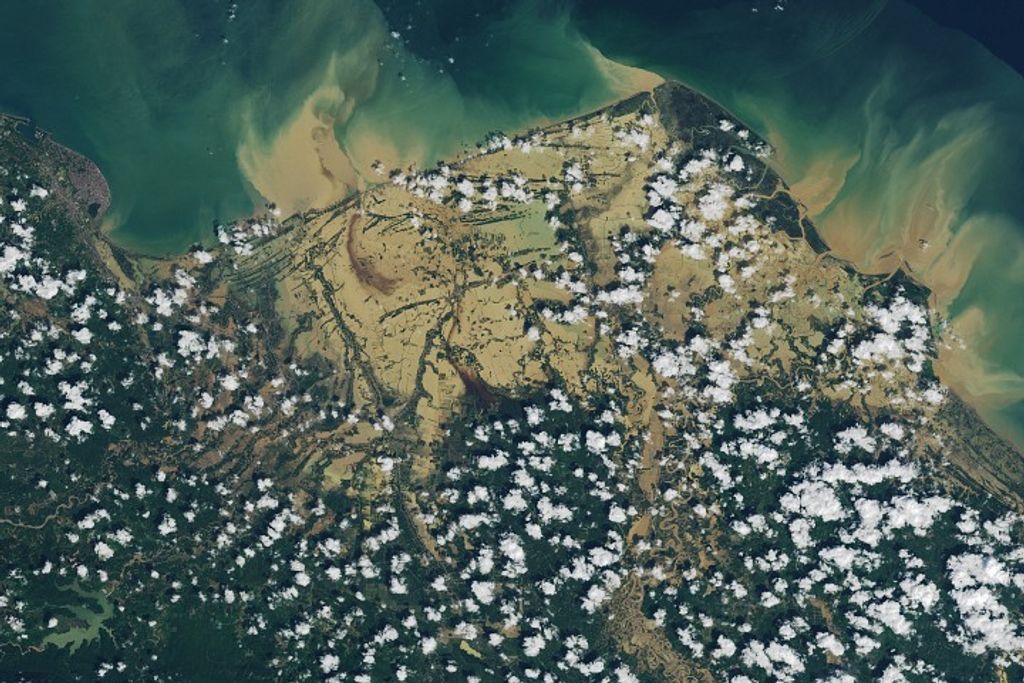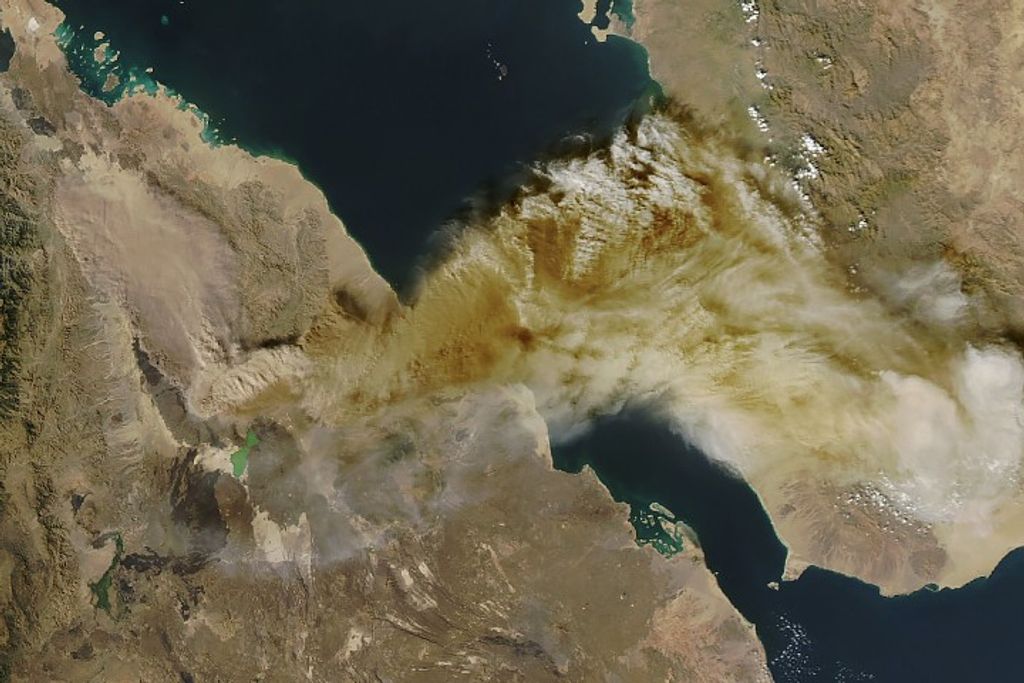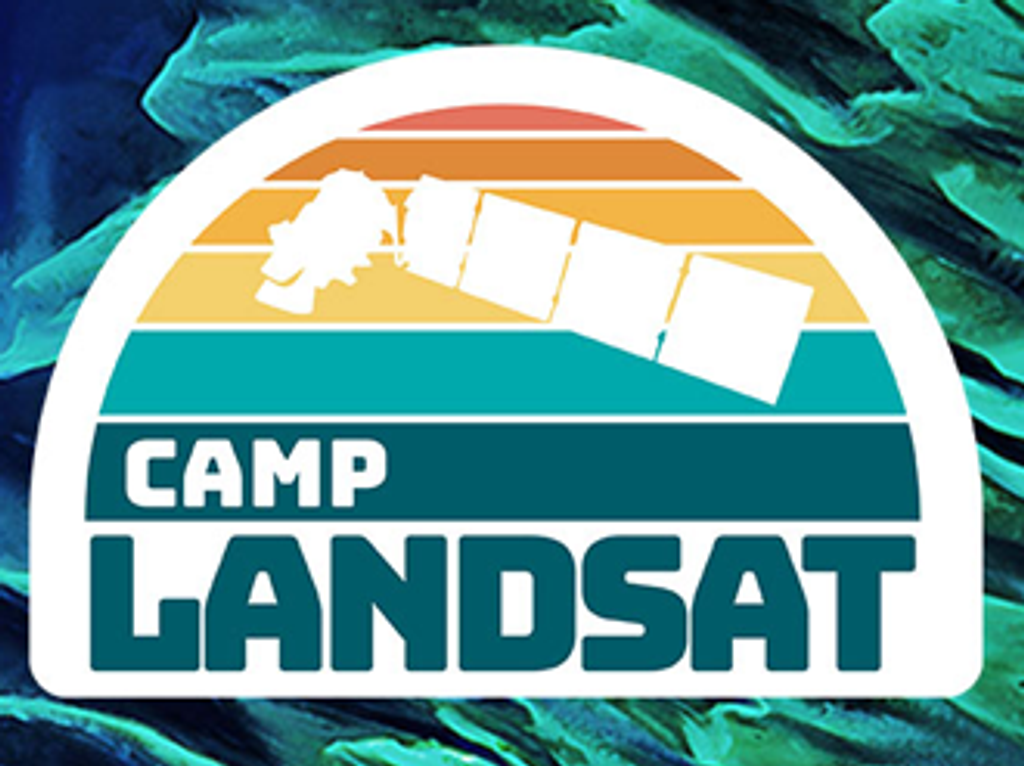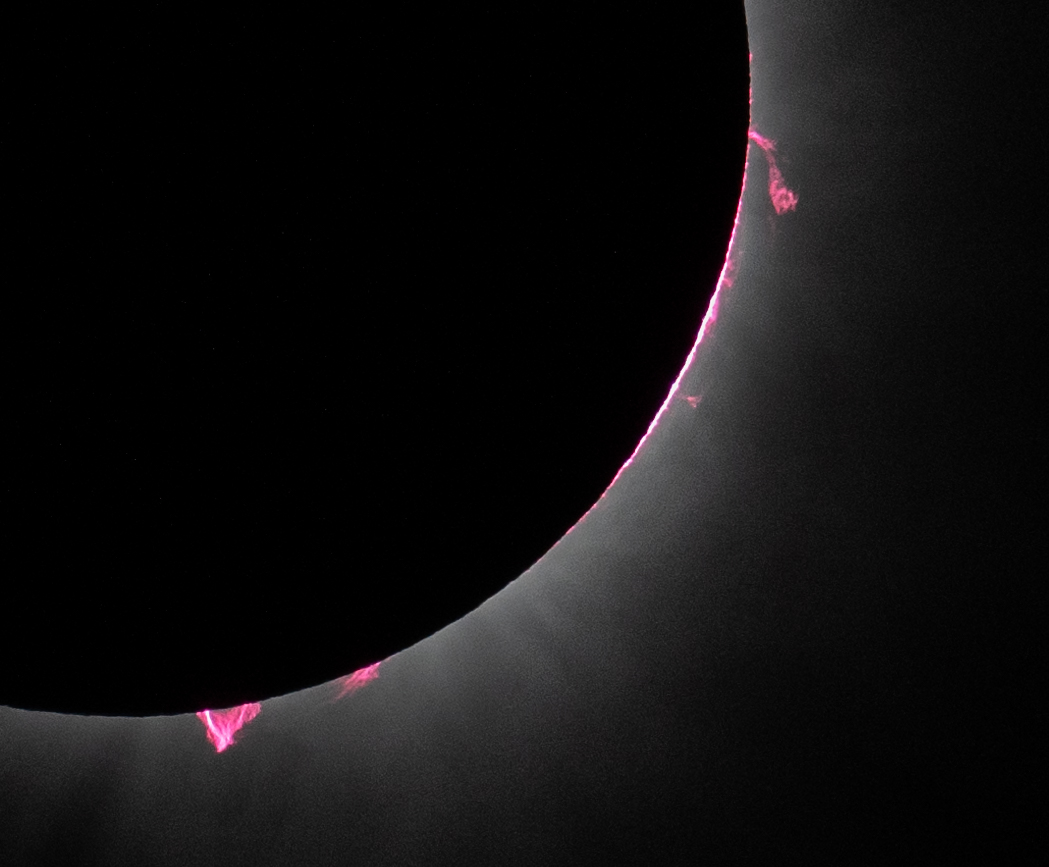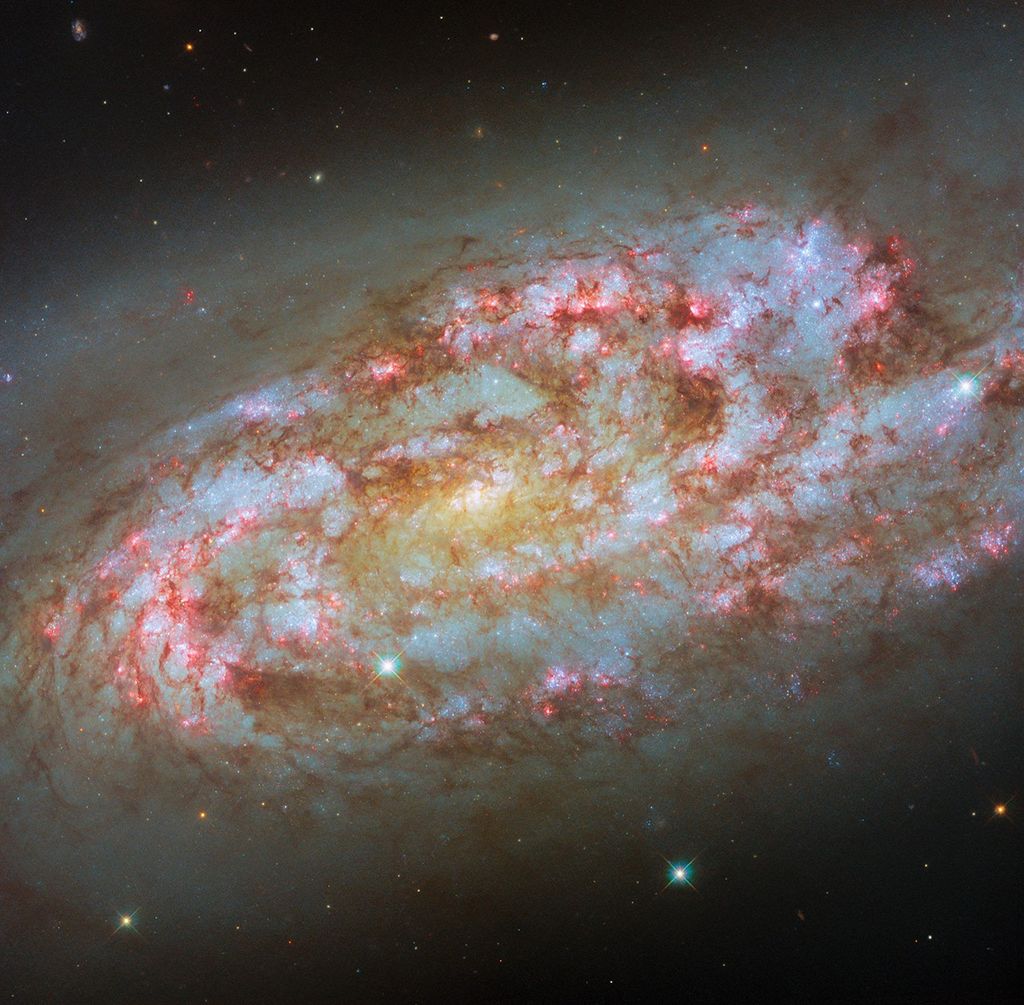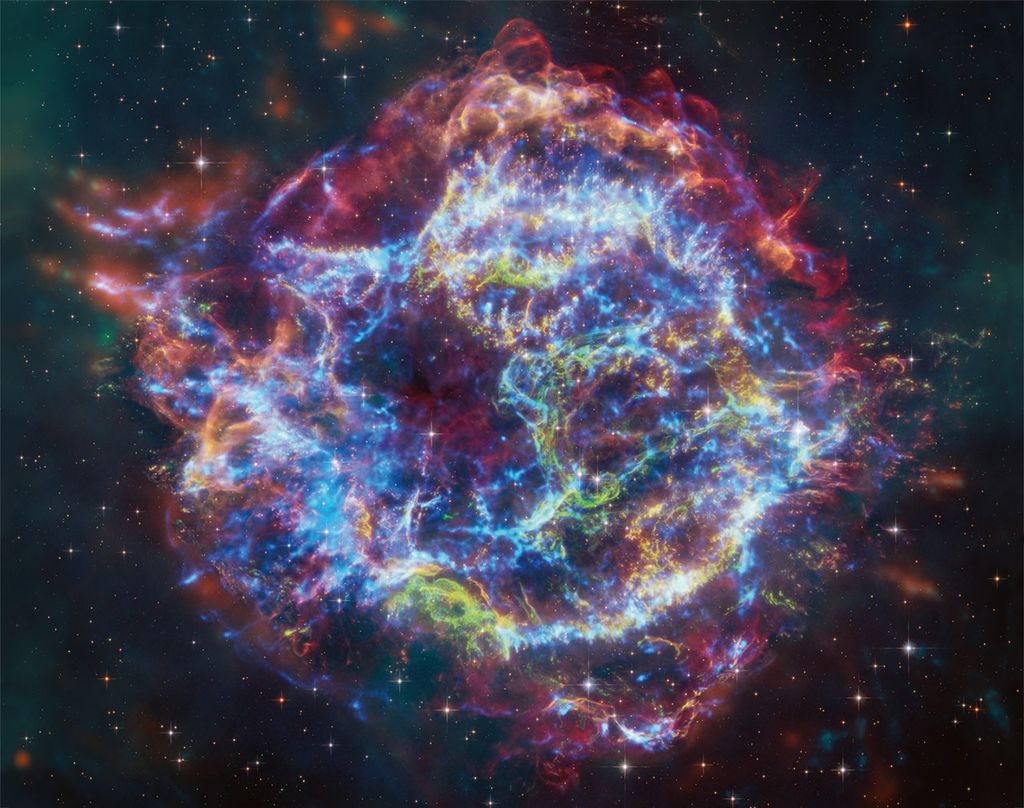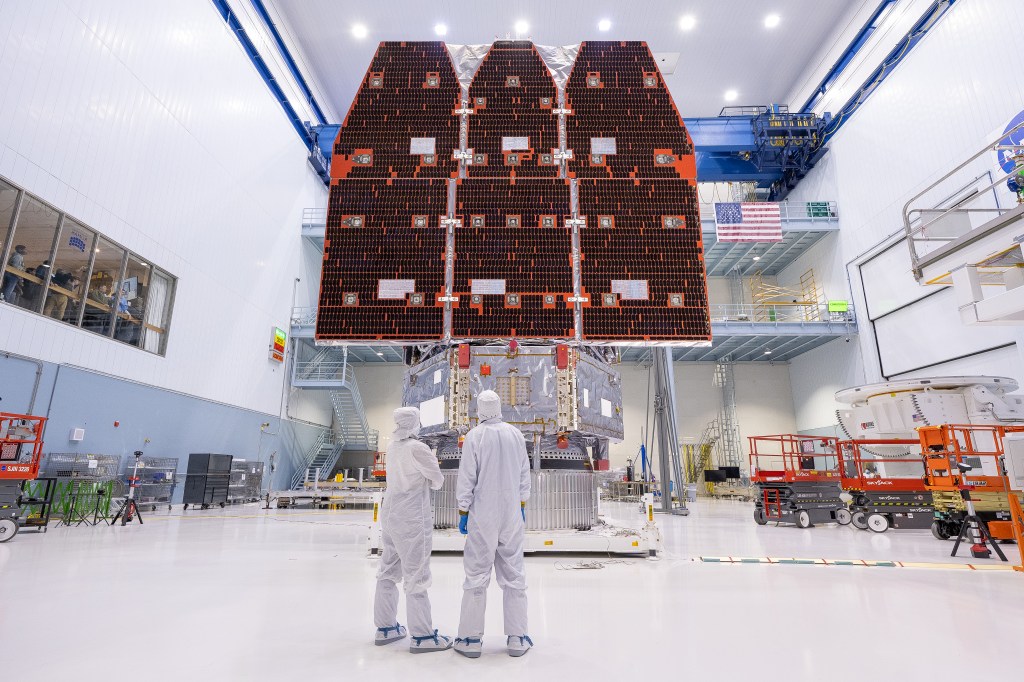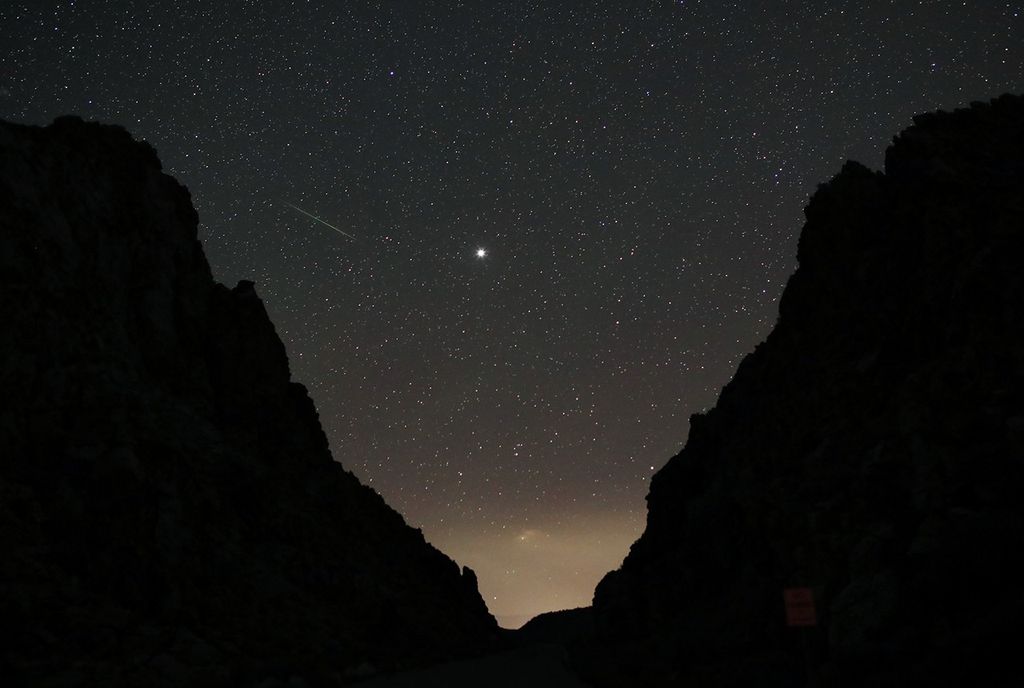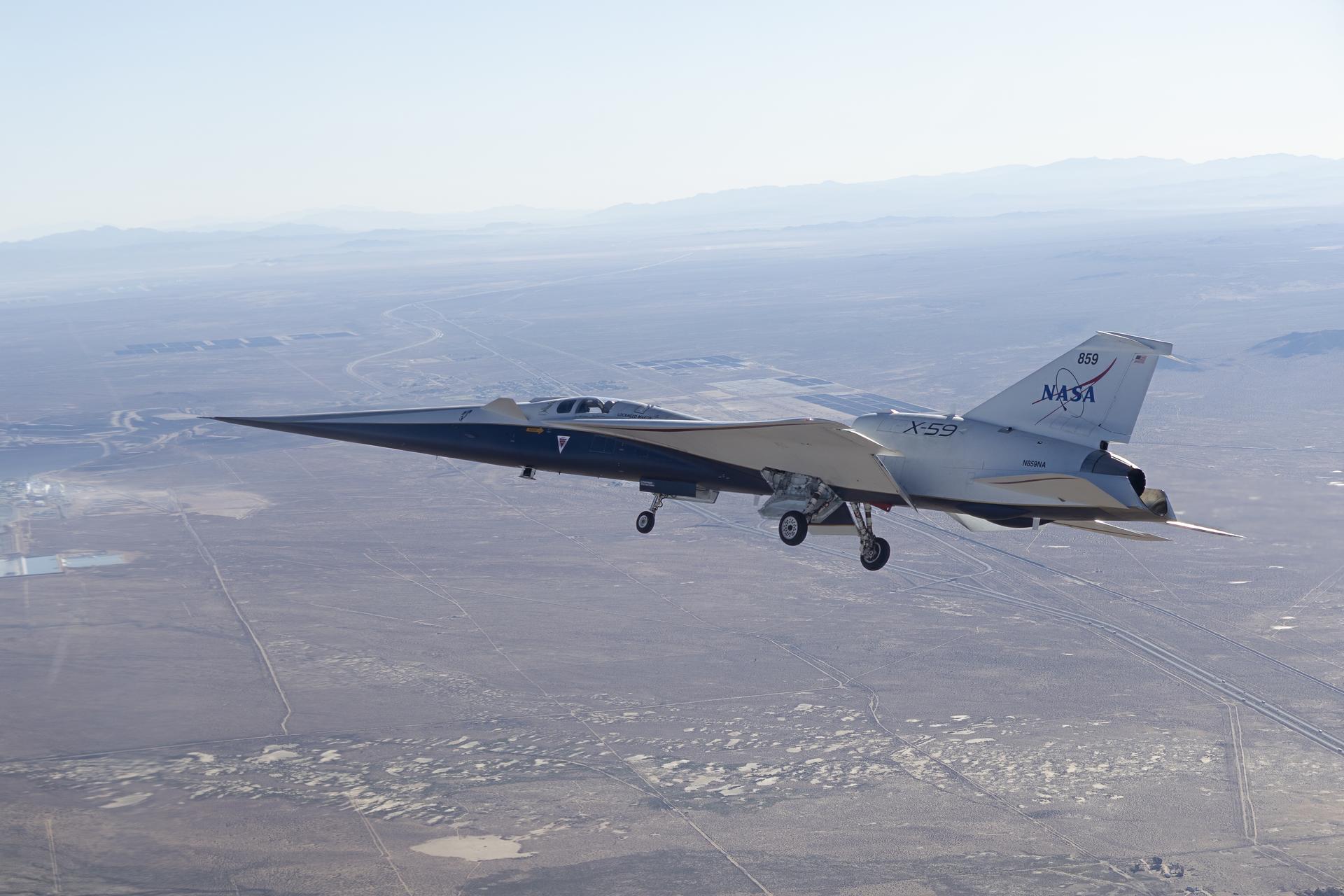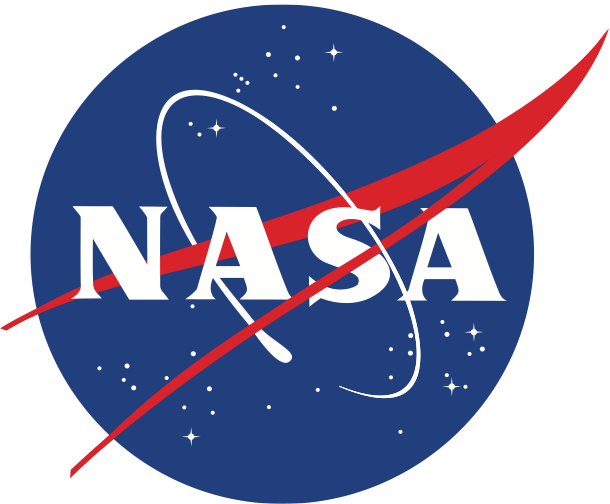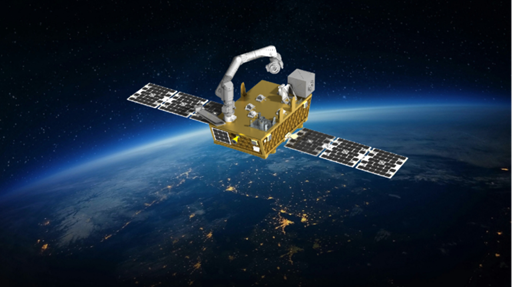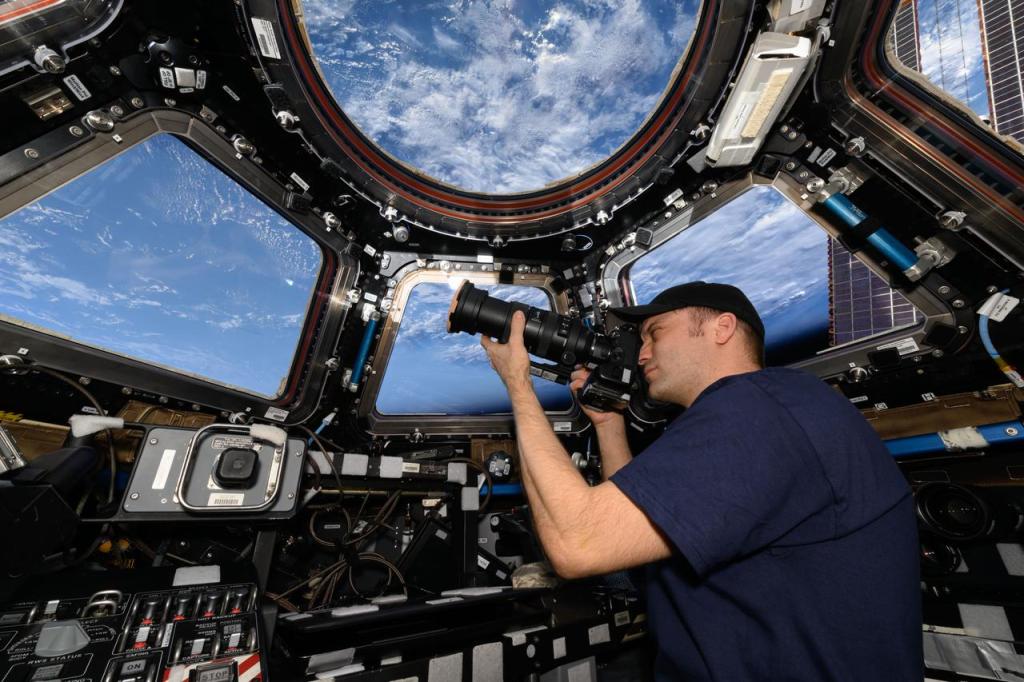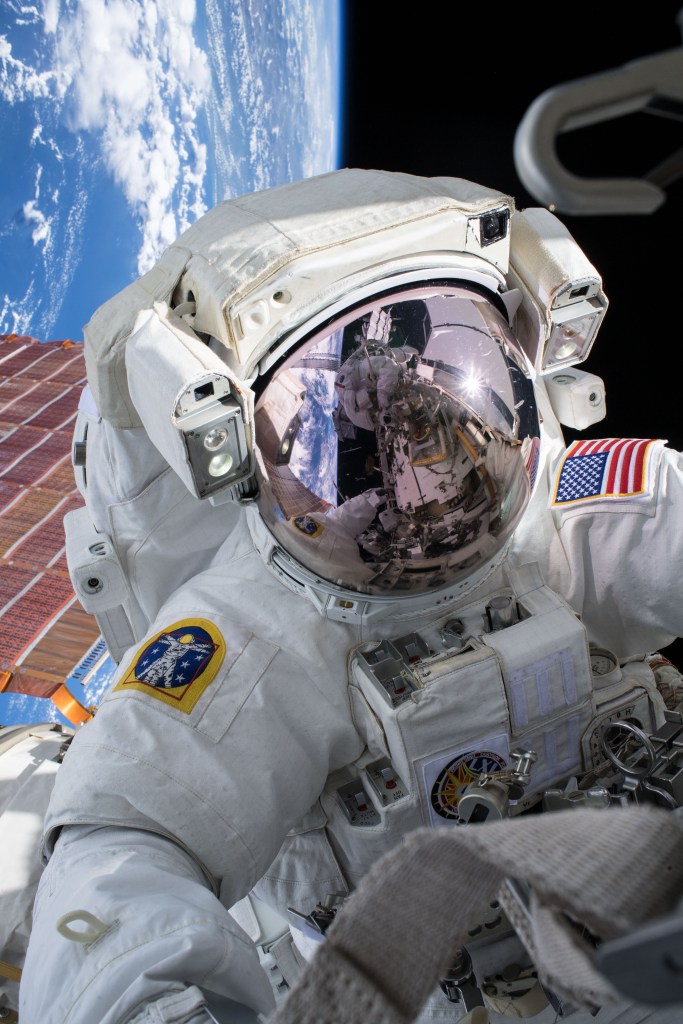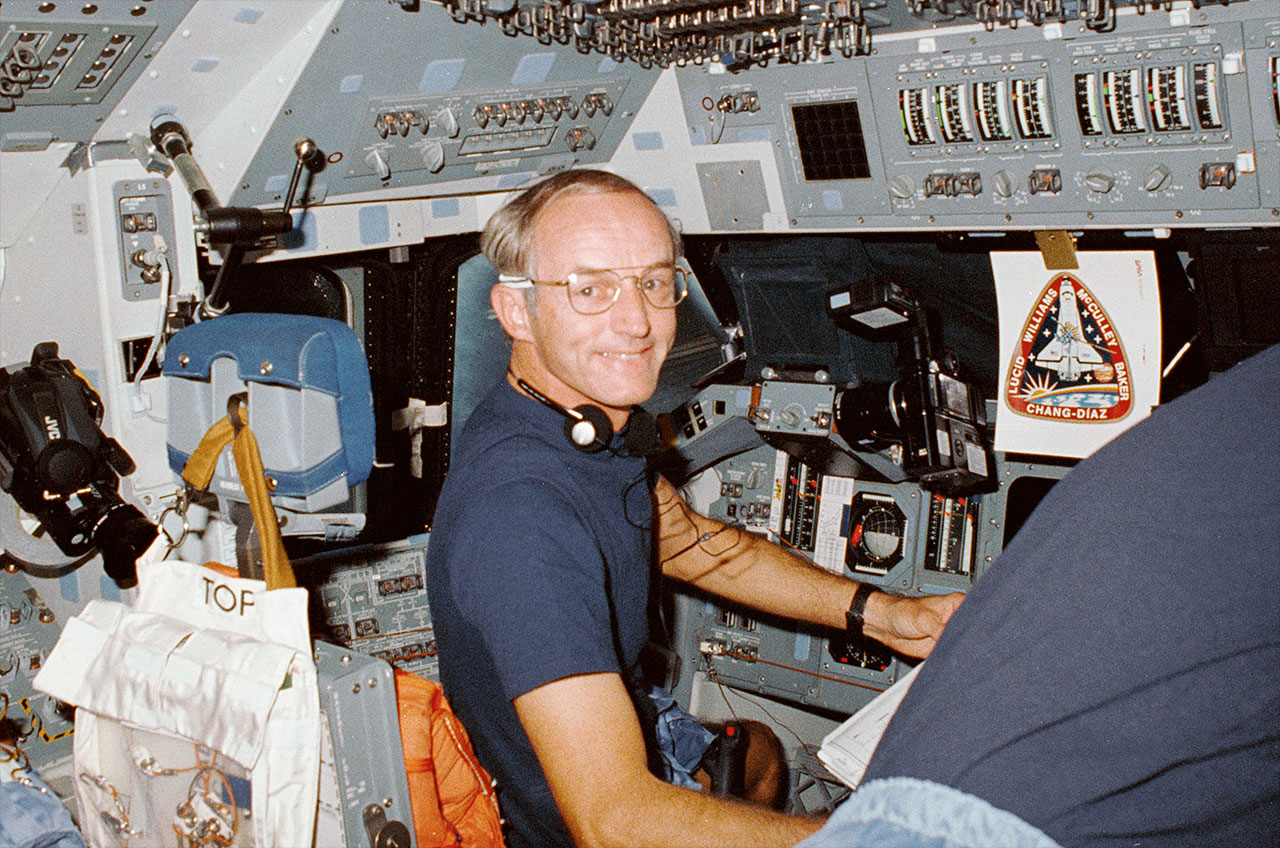Former NASA astronaut and U.S. Navy Capt. Donald E. Williams, who served as pilot on his first space shuttle flight and commander on his final, died Feb. 23. He was 74 years old.
“Don was a member of the astronaut class of 1978, the first class of astronauts chosen to fly the space shuttle,” said Chris Cassidy, chief of the Astronaut Office. “His two flights launched a probe to Jupiter, saw the first unscheduled spacewalk, and conducted numerous science experiments. His passion for flying, service to his country and contributions to our shuttle program are too numerous to mention. On behalf of NASA, we extend our heartfelt sympathies to his family and loved ones.”
Williams was born Feb. 13, 1942, in Lafayette, Indiana, and graduated from Otterbein High School in 1960. He earned a Bachelor of Science degree in mechanical engineering from Purdue University in 1964.
Williams received his commission through the Naval Reserve Officer Training Corps program at Purdue University and completed flight training at the Naval Air Station Pensacola in Florida; Meridian, Mississippi; and Kingsville, Texas. He received his wings in May 1966. He deployed twice to Vietnam the USS Enterprise with Attack Squadron 113 as an A-4 pilot.
While transitioning to the A-7 aircraft, he served as a flight instructor in Attack Squadron 125 at Naval Air Station Lemoore, California, for two years. He deployed twice more to Vietnam aboard the USS Enterprise with CVW-14 staff and Attack Squadron 97. Williams completed a total of 330 combat missions.
In 1973, Williams attended the Armed Forces Staff College. He graduated from the U.S. Naval Test Pilot School at Patuxent River, Maryland, in June 1974, and was assigned to the Naval Air Test Center’s Carrier Suitability Branch of Flight Test Division. From August 1976 to June 1977, following reorganization of the Naval Air Test Center, he was head of the Carrier Systems Branch, Strike Aircraft Test Directorate. He reported next for A-7 refresher training and was assigned to Attack Squadron 94. He logged more than 6,000 hours flying time, which included 5,700 hours in jets and 745 carrier landings.
Williams became an astronaut in August 1979. He first flew in space as pilot of Discovery’s STS-51D, launched April 12, 1985. During the mission, the crew deployed satellites for Telesat of Canada and the U.S. Navy. A malfunction in the Navy’s satellite resulted in the first unscheduled spacewalk to attempt to activate the satellite. In addition, the crew conducted several medical experiments and two student experiments during the almost seven-day flight.
For his second flight, Williams commanded Atlantis’ STS-34, which launched Oct. 18, 1989. During the 5-day, 23-hour mission the crew successfully deployed the Galileo spacecraft, starting its journey to explore Jupiter, operated the Shuttle Solar Backscatter Ultraviolet Instrument (SSBUV) to map atmospheric ozone, and performed numerous secondary experiments involving radiation measurements, polymer morphology, lightning research, microgravity effects on plants, and a student experiment on ice crystal growth in space.
Williams logged a total of 287 hours and 35 minutes in space.
In March 1990, Williams retired from the Navy and left NASA. He went to work for Science Applications International Corporation as a division manager, working on several projects in the Houston area, nationally and internationally.
His awards included the Legion of Merit, the Distinguished Flying Cross, the Defense Superior Service Medal, two Navy Commendation Medals with Combat V, two Navy Unit Commendations, a Meritorious Unit Commendation, the National Defense Medal, and an Armed Forces Expeditionary Medal. He also received the Vietnam Service Medal (with four stars), a Vietnamese Gallantry Cross (with gold star), and the Vietnam Campaign Medal. At NASA he earned the NASA Outstanding Leadership Medal, the NASA Space Flight Medal and the NASA Exceptional Service Medal.
-end-
Jenny Knotts
Johnson Space Center, Houston
281-483-5111
norma.j.knotts@nasa.gov

